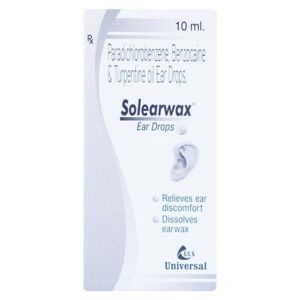BENZOCAINE + PARADICHLOROBENZENE
Benzocaine: Benzocaine is a local anesthetic drug that is commonly used to numb pain or relieve discomfort in various parts of the body. It belongs to the class of medications called ester-type local anesthetics.
The primary use of Benzocaine is to provide temporary relief from pain and itching caused by minor skin irritations, burns, sunburn, insect bites, and other minor cuts or scrapes. It can also be used to numb the gums and oral tissues for dental procedures, teething pain in infants, and throat pain.
Benzocaine works by inhibiting the nerve signals in the area where it is applied. It blocks the conduction of pain signals by stabilizing the neuronal membranes, preventing the generation and transmission of nerve impulses. This numbing effect helps to provide temporary relief from pain and discomfort.
The dose and application method of Benzocaine depend on the specific product and the area being treated. It is typically available as a cream, gel, lotion, or spray, which should be used according to the instructions provided by the healthcare professional or mentioned on the product packaging.
While Benzocaine generally has a good safety profile, it may cause some side effects. Common side effects include temporary skin irritation, redness, itching, or burning at the site of application. In some cases, individuals may experience an allergic reaction with symptoms like rash, swelling, dizziness, difficulty breathing, or tightness in the chest. If these side effects occur, discontinued use and medical attention should be sought immediately.
It is essential to follow the recommended dose and instructions for the safe and effective use of Benzocaine. It is not recommended to use Benzocaine on deep or puncture wounds, serious burns, or infected areas without medical supervision. Additionally, individuals with a history of allergic reactions to local anesthetics or any other allergies should consult a healthcare professional before using Benzocaine.
Paradichlorobenzene: Paradichlorobenzene is a type of medication classified as an antipruritic and anesthetic. It is primarily used to relieve itching and irritation caused by conditions like eczema, insect bites, and other skin irritations.
The mechanism of action of paradichlorobenzene is not fully understood. However, it is believed to work by inhibiting the body’s production of prostaglandins, which are responsible for causing inflammation and itching. By reducing the production of these compounds, paradichlorobenzene helps alleviate the symptoms of itchiness and irritation.
Paradichlorobenzene is available in various forms, including creams, ointments, and lotions. The recommended dose and application method may vary depending on the specific product and the severity of the condition being treated. It is important to carefully read and follow the instructions provided by the healthcare professional or the product label.
Like any medication, paradichlorobenzene may cause side effects. Common side effects may include skin irritation, redness, and a burning or stinging sensation at the application site. In some cases, allergic reactions may occur, resulting in symptoms like rash, hives, swelling, or difficulty breathing. If any of these side effects occur or worsen, it is essential to seek medical attention promptly.
Additionally, it is important to note that paradichlorobenzene should not be used on broken or infected skin unless directed by a healthcare professional. It is also recommended to avoid contact with the eyes, nose, mouth, or other mucous membranes.
As with any medication, it is essential to consult a healthcare professional, such as a doctor or pharmacist, before using paradichlorobenzene. They can provide guidance on proper usage, potential drug interactions, and ensure the medication is suitable for the specific condition being treated.

